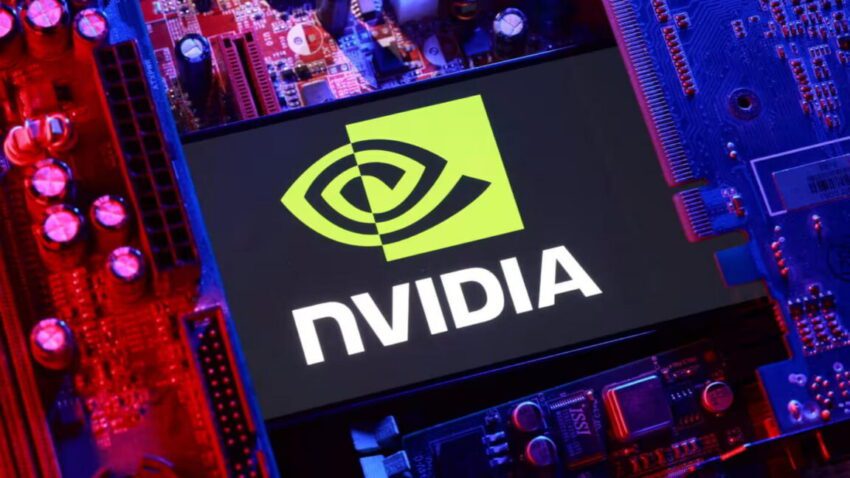
china blocks sale of nvidia ai chips China has officially prohibited its leading technology firms from purchasing Nvidia’s artificial intelligence chips, marking a significant escalation in its efforts to bolster domestic industry and enhance competitiveness against the United States.
china blocks sale of nvidia ai chips
Regulatory Action by the Cyberspace Administration of China
This week, the Cyberspace Administration of China (CAC) issued directives to major companies, including ByteDance and Alibaba, mandating the cessation of testing and orders for Nvidia’s RTX Pro 6000D chips. This decision reflects a broader strategy by the Chinese government to reduce reliance on foreign technology and promote homegrown alternatives.
Details of the Ban
According to sources familiar with the situation, the CAC’s directive specifically targets the RTX Pro 6000D, a chip that Nvidia had customized for the Chinese market. Several Chinese firms had expressed intentions to order tens of thousands of these chips and had already begun preliminary testing and verification with Nvidia’s server suppliers. The abrupt halt in orders is likely to disrupt the plans of these companies, which were gearing up to integrate advanced AI capabilities into their operations.
Implications for Chinese Tech Companies
The ban poses significant challenges for Chinese technology companies that rely on advanced AI capabilities to maintain their competitive edge. The RTX Pro 6000D was expected to enhance machine learning, data processing, and other AI-driven applications. With the ban in place, these companies may need to pivot quickly to alternative solutions, potentially stalling their innovation timelines.
Beijing’s Broader Strategy
This regulatory action aligns with Beijing’s broader strategy to strengthen its domestic semiconductor industry. In recent years, China has invested heavily in developing its own chip manufacturing capabilities, aiming to reduce dependence on foreign technology amid escalating tensions with the United States. The U.S. has implemented various restrictions on technology exports to China, particularly in the semiconductor sector, citing national security concerns.
China’s Semiconductor Ambitions
China’s ambitions in the semiconductor space are not new. The government has set ambitious goals to achieve self-sufficiency in chip production. Initiatives such as the “Made in China 2025” plan aim to position the country as a global leader in high-tech manufacturing, including semiconductors. The recent ban on Nvidia chips is a clear indication that China is willing to take drastic measures to protect and promote its domestic industry.
Impact on Global Supply Chains
The ban on Nvidia chips may also have ripple effects on global supply chains. Nvidia, a leader in the AI chip market, has established itself as a critical supplier for various industries, including cloud computing, gaming, and autonomous vehicles. The loss of a significant market like China could impact Nvidia’s revenue and influence its strategic decisions moving forward.
Reactions from Stakeholders
The reactions to the ban have been mixed among stakeholders. Some industry analysts view the move as a necessary step for China to assert its technological independence. Others, however, express concern over the potential for increased fragmentation in the global tech landscape.
Industry Analysts’ Perspectives
Industry analysts have pointed out that while the ban may provide short-term benefits for China’s domestic chip manufacturers, it could also lead to longer-term challenges. The rapid pace of technological advancement in AI requires constant innovation, and the lack of access to cutting-edge technology from companies like Nvidia may hinder China’s ability to keep pace with global competitors.
International Reactions
Internationally, the ban has been met with scrutiny. Many observers are concerned that such actions could exacerbate the ongoing tech war between the U.S. and China. The U.S. has already imposed restrictions on several Chinese tech firms, and this reciprocal action may lead to further escalations in trade tensions.
Potential Alternatives for Chinese Companies
In light of the ban, Chinese companies may need to explore alternative solutions to meet their AI needs. Several domestic chip manufacturers have been ramping up their research and development efforts to create competitive products. Companies like Huawei and Alibaba have been investing in their own AI chip technologies, which could serve as substitutes for Nvidia’s offerings.
Domestic Chip Development
Huawei, for instance, has been working on its Ascend series of AI chips, designed to compete directly with Nvidia’s products. These chips are aimed at various applications, including cloud computing and data centers. Similarly, Alibaba has been developing its own AI chips under the brand name Hanguang, which have shown promising results in specific applications.
Challenges Ahead
Despite these efforts, developing competitive alternatives to Nvidia’s chips is no small feat. The complexity of AI chip design and manufacturing requires significant investment in research, development, and infrastructure. Additionally, the rapid evolution of AI technology means that any domestic solutions must be continually updated to remain relevant.
Conclusion: The Future of AI in China
The ban on Nvidia’s AI chips is a significant development in the ongoing narrative of technological rivalry between the U.S. and China. While it underscores China’s determination to bolster its domestic semiconductor industry, it also raises questions about the future of AI technology in the country. The immediate impact on Chinese tech companies could be substantial, as they scramble to find alternatives and adapt to the new regulatory landscape.
As the situation unfolds, it will be crucial to monitor how Chinese firms respond to this challenge and whether they can successfully develop competitive alternatives to Nvidia’s offerings. The outcome will not only shape the future of AI in China but also influence the global tech landscape as a whole.
Source: Original report
Was this helpful?
Last Modified: September 17, 2025 at 6:36 pm
0 views














